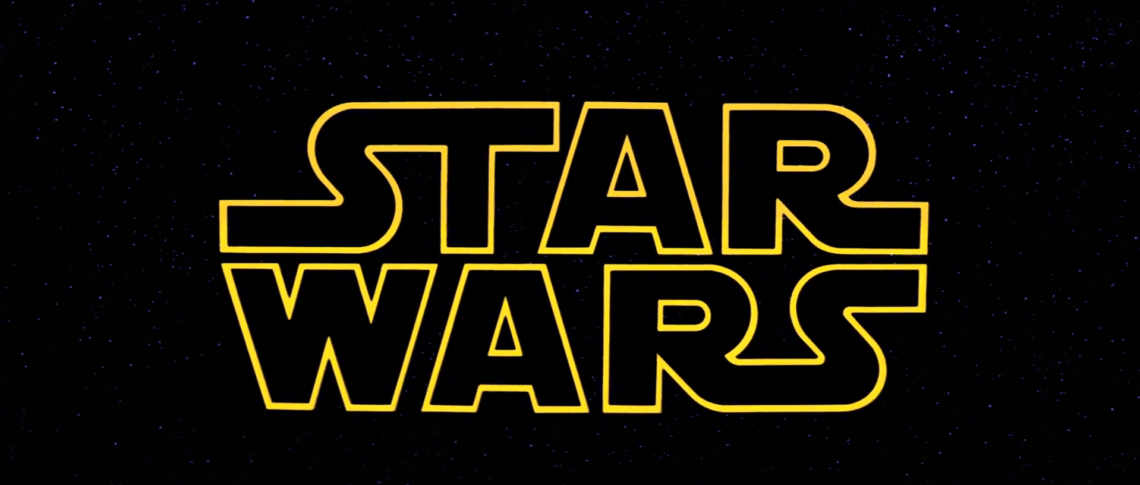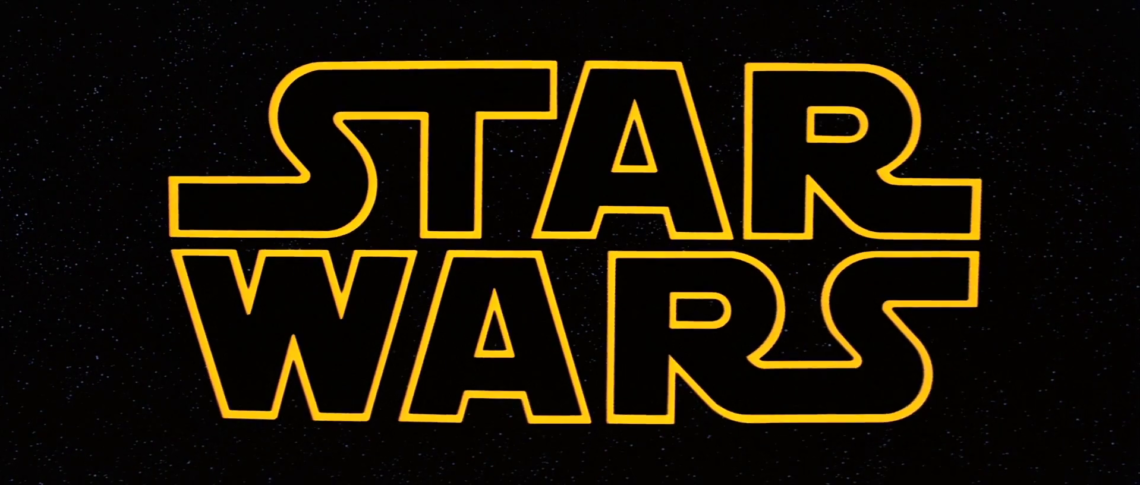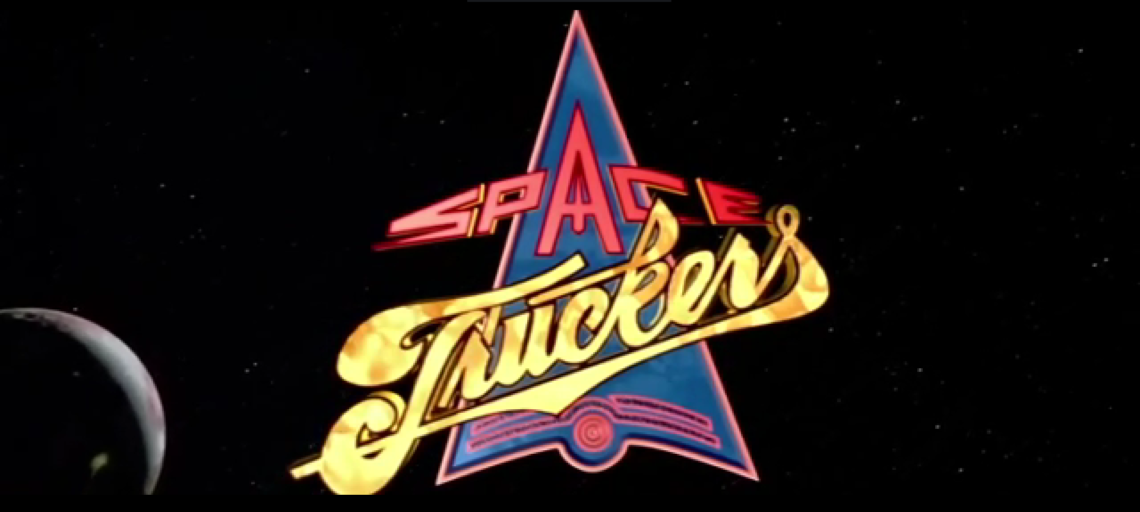-
#508 – Star Wars Episode VI : Return of the Jedi (1983)
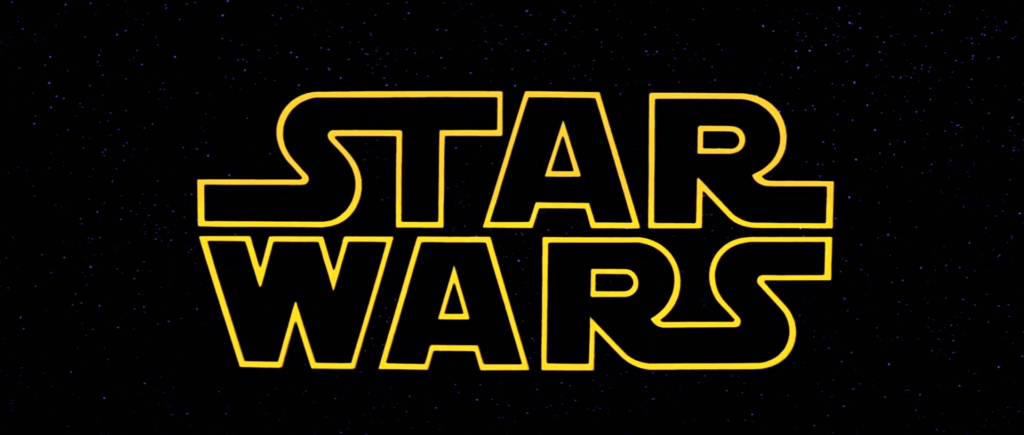
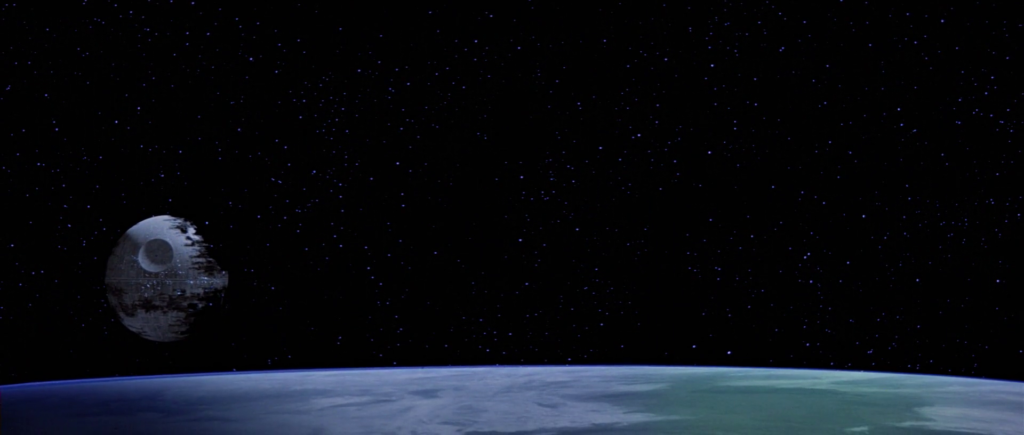
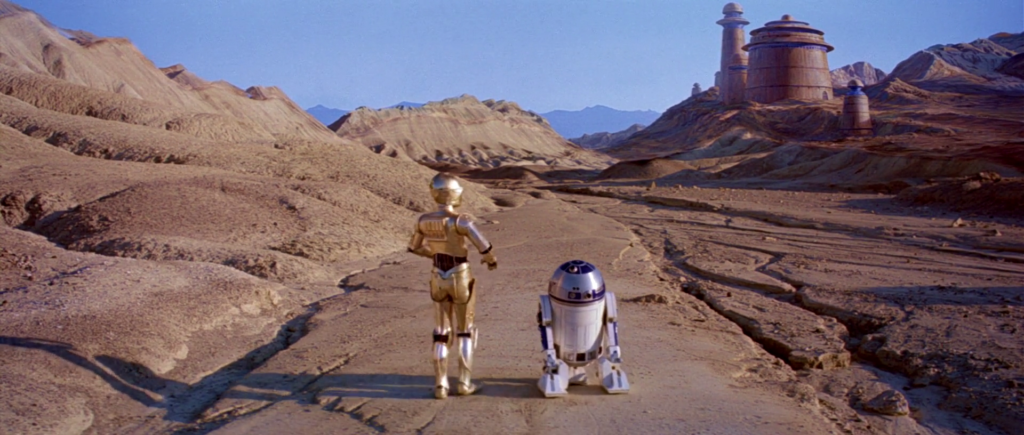
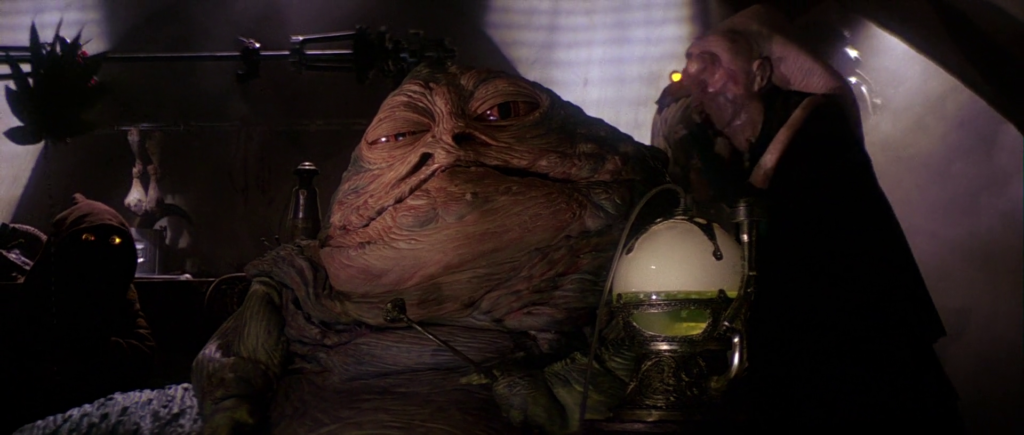
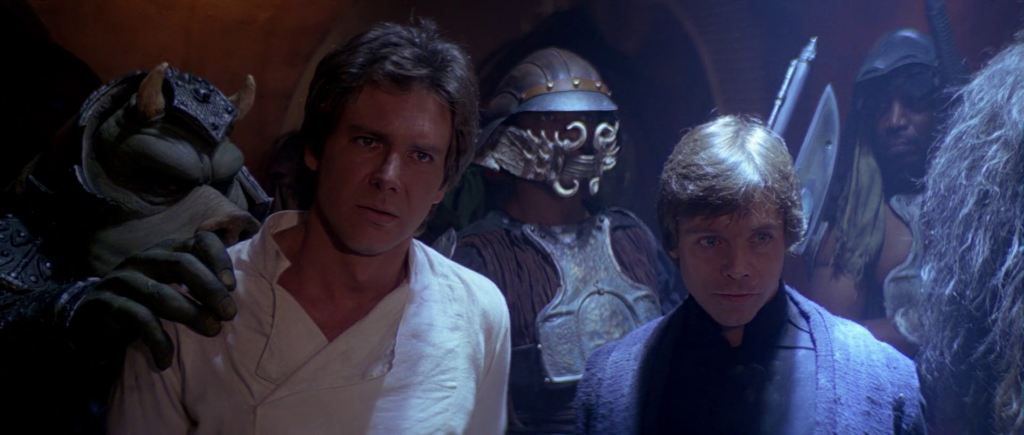

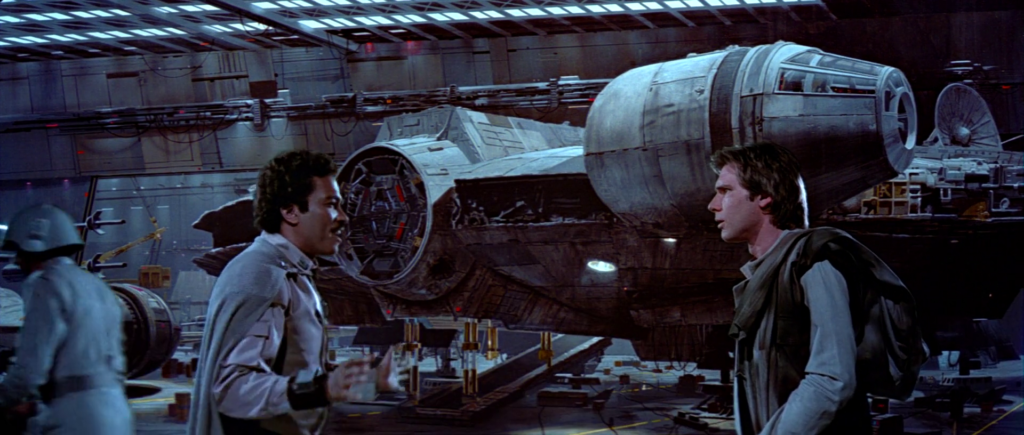
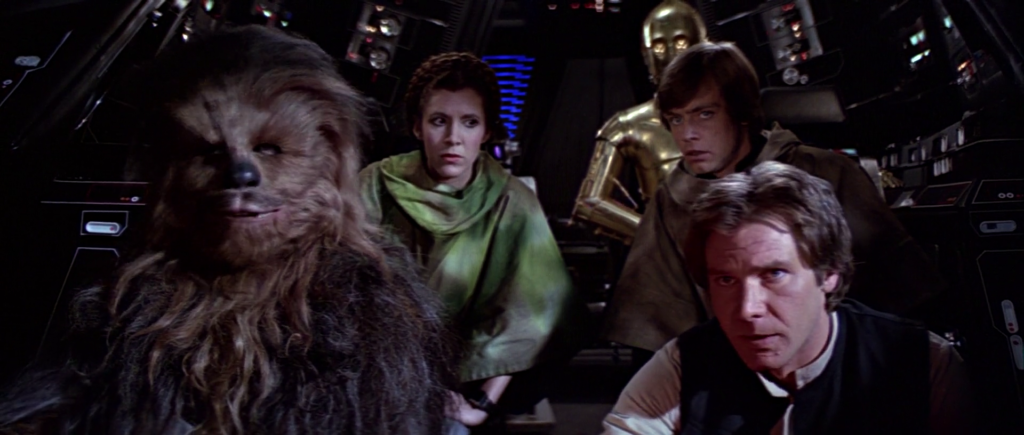
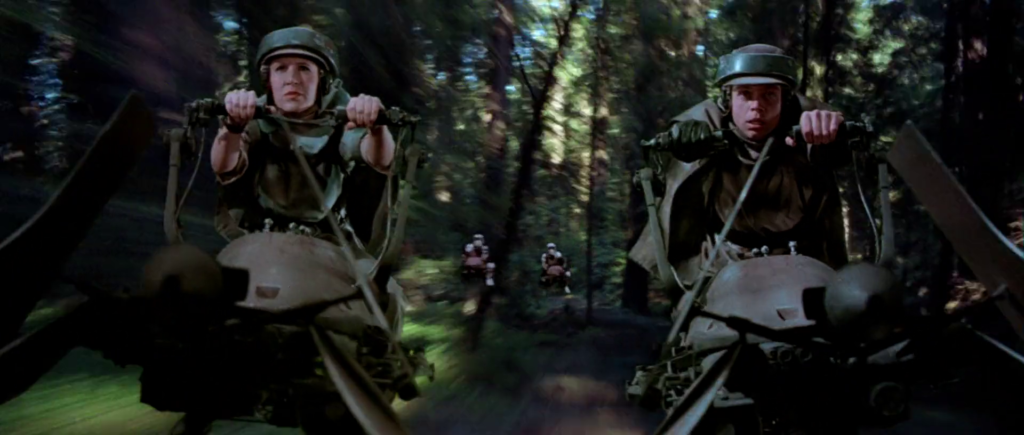
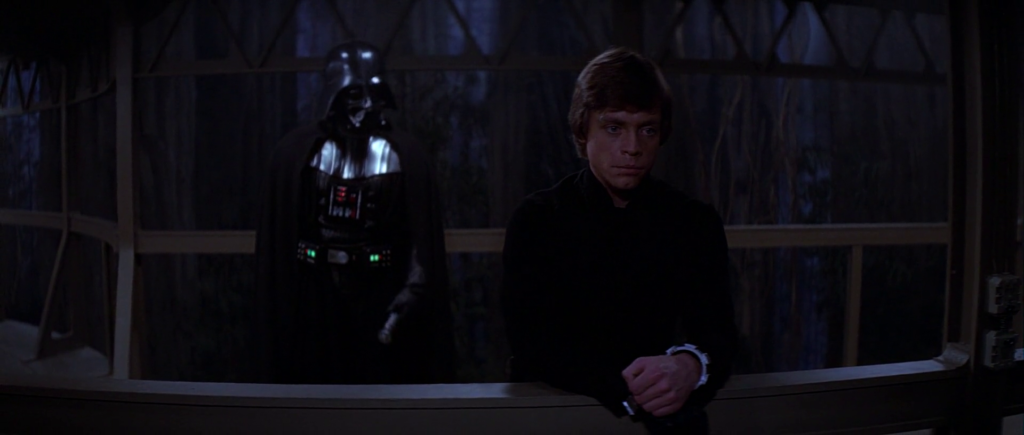
Star Wars Episode VI: Return of the Jedi (1983)
Film review #508
Director: Richard Marquand
SYNOPSIS: Luke Skywalker and his friends attempt to rescue Han Solo from the clutches of Jabba the Hutt, meanwhile, the evil Galactic Empire are busy building a new death star, leading to a battle between the empire and rebels that will determine the fate of the galaxy…
THOUGHTS/ANALYSIS: Star Wars Episode VI: Return of the Jedi is a 1983 science-fiction film and the final film in the original Star Wars trilogy. Set one year after the events of previous film, in the opening we see Luke Skywalker and his friends attempting to infiltrate the palace of Jabba the Hutt and rescue their friend Han Solo, who was frozen in carbonite at the end of the previous film. Like in Episode V, the gap between films presents a bit of an issue plot-wise, perhaps more so here. For example, the opening title crawl just casually outlines the fact that the empire is constructing a new death star, which was not hinted at or set up at the end of the previous film, and to just reveal this significant plot-point (regardless of it being a bit recycled from the first film) as a bit of text in the opening seems to dilute the impact of what could have been a significant moment in the film. The first act of the film as mentioned takes place one year after the events of the previous film and is essentially a rescue mission to free Han Solo. Again, there’s issues with the plot that immediately surface: why did they wait a year to rescue Han Solo? Why do it now when the empire is constructing a new death star? The Empire Strikes Back had a similar problem with it’s three-year gap between it and A New Hope, where it seemed like the relations between the characters hadn’t changed much in three years. It just seems to be a consistent thing in these films that the gaps between them aren’t well thought out (perhaps due to the fact that the trilogy wasn’t planned out in advance). The first act itself is a good set-up, with all of the heroes working together in their own ways to help free Han Solo, and it closes the arc with Jabba the Hutt set up over the trilogy, but in the context of the wider story it seems like it takes up too much time when the fate of the galaxy is on the line and the main rebels take time out to save one person. The scene with Luke taking a big detour to see Yoda, just so he can confirm that Darth Vader is his Father, is of little significance, and I’m not sure why it was kept in. Apparently it was filmed because they needed to confirm that Vader wasn’t lying about him being Luke’s Father, but as a viewer, this didn’t seems like an issue that arose for me, and even if it was, it could have been handled some other, quicker way, instead of making a big detour, and an extended death scene that just tries to be overly-dramatic for some reason. The film refocuses itself after this and sets the stage for the final battle well and also giving enough space for your favourite characters, but there are definitely some issues with the story which are harder to overlook than the ones in The Empire Strikes Back.
All of your favourite characters return in the film, and they are for the most part consistent with what we know about them. There’s not much development, but I think everything is pretty set up for the climax character-wise. Luke attempts to come across as a hardcore Jedi now as he calmly walks into Jabba’s palace and decimates him with his plan, but Hamil as an actor still doesn’t have that feel of someone who is bad-ass, or can lean into the more dramatic moments, like Yoda’s death. Leia’s character doesn’t have a specific arc, but her response to finding out that she is Luke’s sister, that she has “somehow always known” is a bit weird, particularly in the context of the love triangle between her, Luke and Han that was part of the first film, and her kissing Luke on screen twice. Apart from that, she’s still a strong character, but the plot just doesn’t seem to affect her on a personal level. Han’s character feels pretty diluted in this film: he mostly just reacts with grumpy quips about every situation. he’s still one of the most definitive characters, but his character just isn’t doing much new. Apparently one of the original plans was to have him die, but George Lucas overruled it on account of the potential to hurt merchandise/action figure sales. You can probably trace a lot of the decisions about the film to Lucas being concerned about merchandise sales (which was his main source of income for the films). The new characters, such as the new stormtrooper designs on Endor, Admiral Ackbar, and especially the Ewoks would no doubt drive a new wave of merchandise sales, particularly among younger people.
In terms of the villains, Jabba’s villain arc is quite nicely closed off, even though he is only mentioned and appears briefly throughout the films. Nevertheless, we have a good idea of who he is and what he does. Vader’s story in this film shifts a fair amount: he changes from a ruthless ruler killing his own people in the previous films, to a bit of a lackey to the Emperor in this one. Maybe this again an attempt to not make him too scary to children, but also I guess it ties into the sub-plot of Luke attempting to “save” his Father and turn him away from the dark side. This is something that just suddenly happens in this film, and is in no way is Vader set up as someone who can be saved in the previous films, so it seems like an odd direction to take it. The Emperor, who we see in the flesh for the first time in this film, takes full control of the villain role, but we know so little about him, and the fact that he interacts only with Luke makes his impact severely limiting. I’m not sure what we can say about Boba Fett: the entire trilogy seemed to set him up in the background as a fearsome bounty hunter, but he meets his end at the end of the first act without really doing anything, and just being shot by Han in his half-blind state. I’m going to designate him as another victim of being an action figure first and a character second.
When the film gets going with it’s space battles and lightsaber fights, it has that same energy that Episode IV had, and plenty of spectacle and suspense. The film works best in this simplicity, where inconsistencies in the plot don’t slow it down. The ships look great, the puppetry is good, and everything is vibrant and colourful when it needs to be. The soundtrack is an improvement over Episode V simply because it doesn’t use the “imperial march” every five minutes.
I’ve been looking at these Star Wars films as a non-fan, and of the position that I’m probably never going to change my mind, so they may seem overly-critical. Return of the Jedi is a decent action/adventure film that is simple, but effective. However, it is much easier to pick out issues with the story here than in The Empire Strikes Back: there’s a lot of decisions in the script I’m really not convinced by, and there’s a lot of moments where the film plays it safe (placating Han’s character, downgrading the threatening Vader), or there’s definitely an eye on introducing new characters to make merchandise from. It’s essentially just more Star Wars, so if you like that, then you’ll like this, but even fans can certainly find things which are lacking (not just the annoying ewoks).
-
#507 – Star Wars Episode V: The Empire Strikes Back (1980)
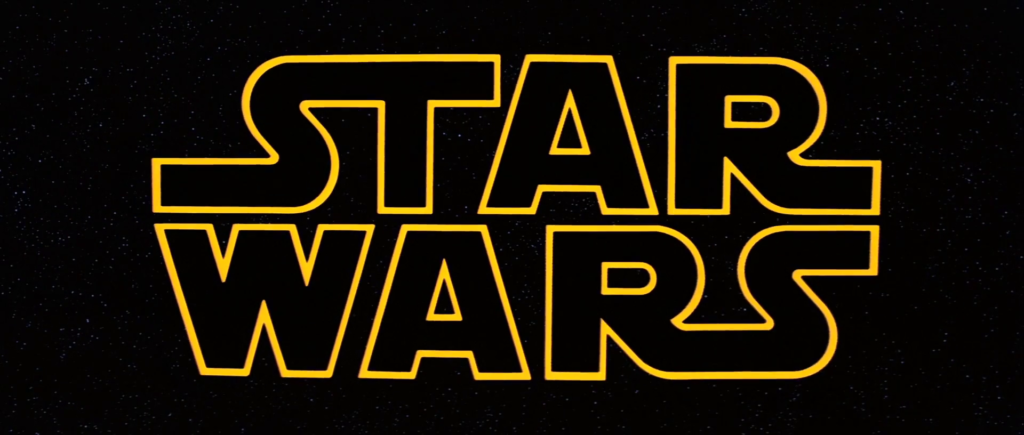
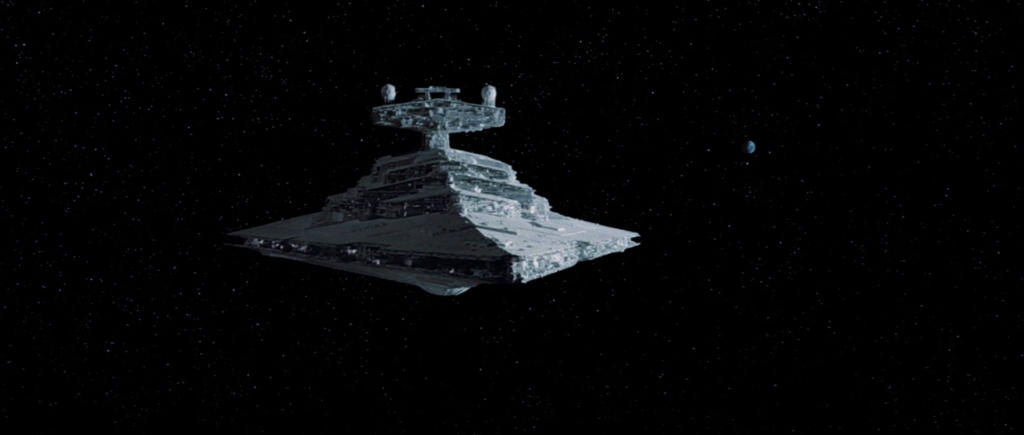
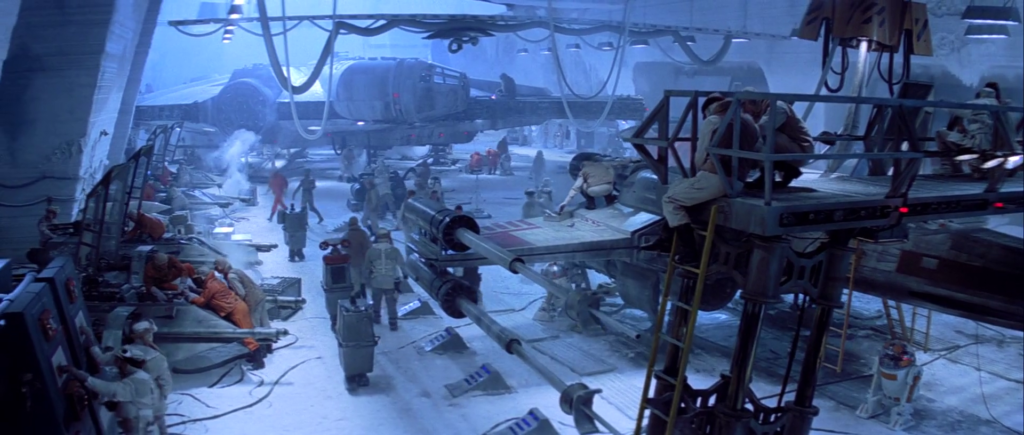

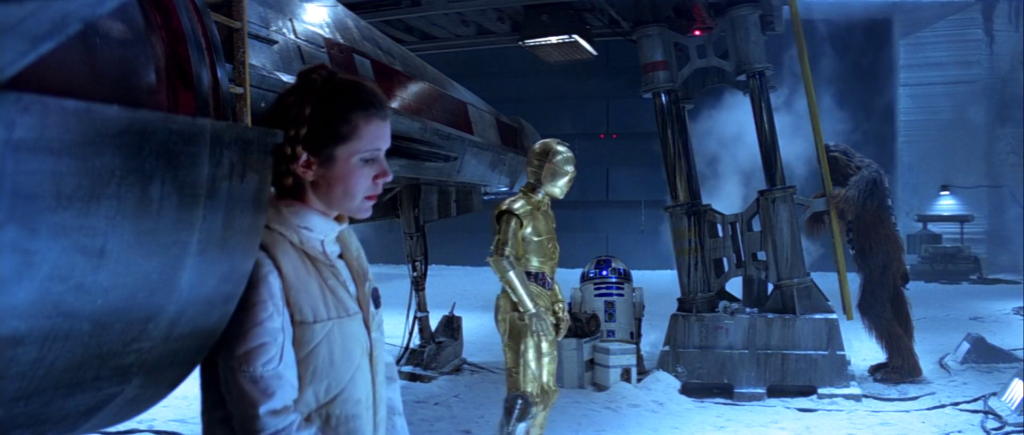
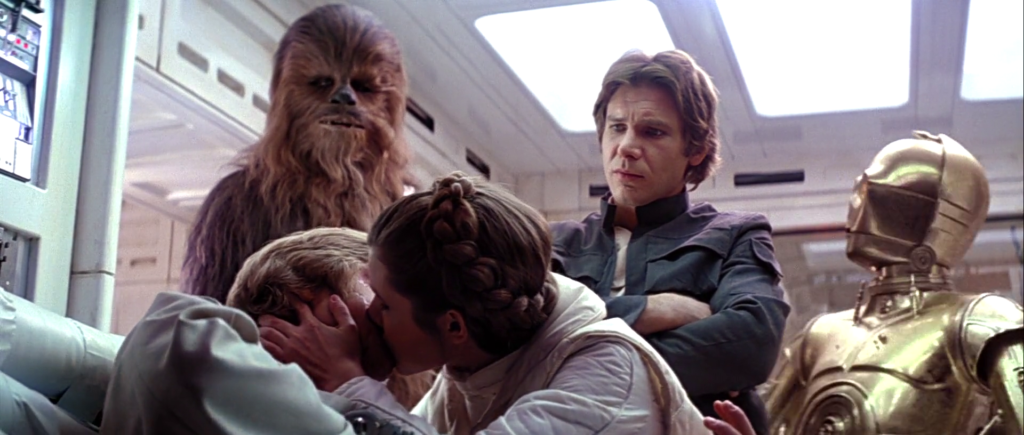
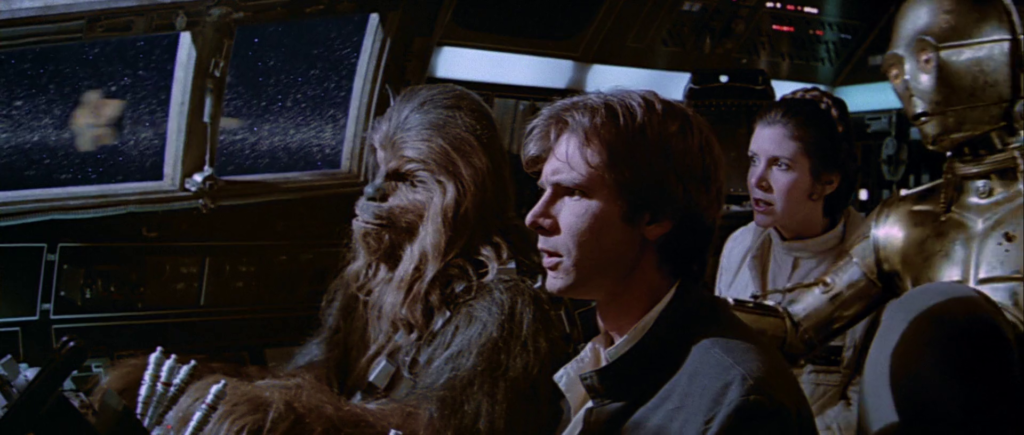
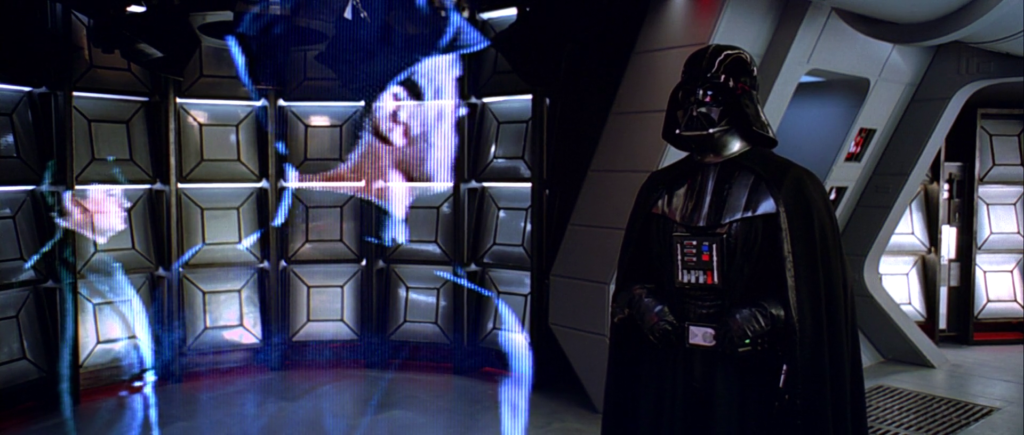
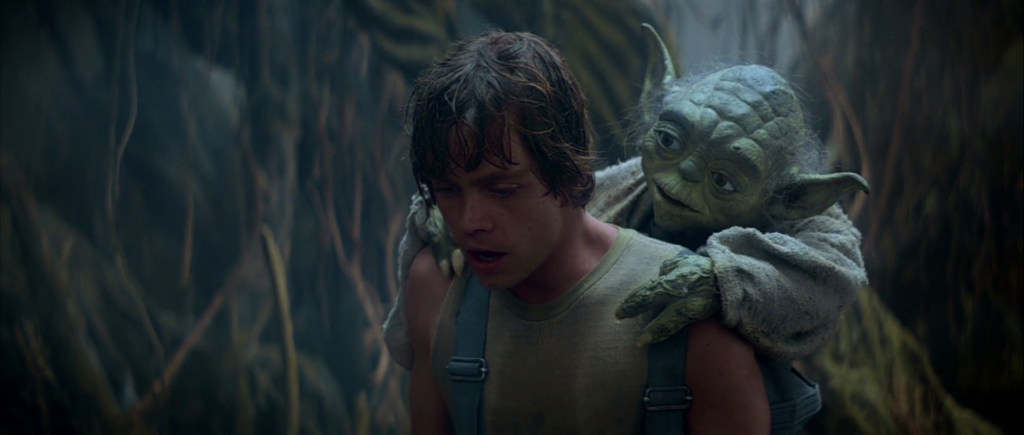

Star Wars Episode V: The Empire Strikes Back (1980)
Film review #507
Director: Irvin Kershner
SYNOPSIS: Three years after the rebel alliance successfully destroyed the galactic empire’s death star battlestation, the empire has been mercilessly hunting down the rebels and chasing them across the galaxy. The empire has chased them to their latest base in the Hoth system, and begin their assault. Luke Skywalker finds he must fulfil his destiny to become a true Jedi, and his friends evade pursuit from the empire as the stakes are elevated for all of the heroes…
THOUGHTS/ANALYSIS: Star Wars Episode V: The Empire Strikes back is a 1980 sci-fi film and the sequel to the original 1977 film Stars Wars Episode IV. Set three years after the events of the previous film, we find the heroes of the first film hiding out on an ice planet with the rest of the rebel alliance, with the Empire in pursuit. Following their success at the end of the previous film, the title of the film quickly comes to fruition, with the evil galactic empire striking back with overwhelming force. It contrasts quite a bit with the ending of Episode IV, which felt very much like a decisive victory, but then again had Darth Vader survive and showed nothing of the fallout from the Rebel’s victory. The idea of there even being a sequel after the first one was very much in doubt, so it’s fair that there would have been a lack of foreplanning in that regard. The Empire Strikes Back immediately raises the stakes in the opening act, and thrusts our heroes back into action, giving them new motivations and resolve. There’s very little breathing room in the film’s script, and nearly every moment is filled with action and energy. From a story standpoint you could probably cut the Hoth battle down fairly easily, but it’s more of a spectacle than a story impetus, and opening the film with a big action sequence will quickly satisfy those looking for an entertaining film rather than hard science-fiction. Another vast improvement in the story is how the story isn’t stringed together by a series of huge conveniences of characters being in the right place at the right time. There’s a bit of that (Such as Luke happening to crash land at the exact part of a whole planet where Yoda is), but otherwise it’s not much of an issue here.
When Empire Strikes Back was released, it received very mixed reviews: the change in tone from a more simplistic good vs evil story to a more complex world-building and darker tone might have alienated those who were simply looking for more of the same. However, that opinion has shifted quite significantly over the years, becoming a model for how sequels should be made. The film ups the stakes, builds the world, and shifts the tone to provide a new experience. The changes won’t be for everyone, but some amount of change is necessary to keep things fresh and justify actually making a sequel. Furthermore, this film has become regarded as one of the best in the series for these reasons, and it’s accomplishment in turning a fairly simple story into a franchise. The darker tone might be seen as symbolic that the series has “grown up” in some way, and that certainly seems to be what The Empire Strikes Back has been going for.
One thing that I noticed right away with regards to the characters is that even though three years have supposedly passed between this film and the last, the main characters don’t really seem to have changed in those three years. Their relationships all seem to be at a standstill waiting for this film to start. For example, the Luke-Leia-Han love triangle still seems to be a thing, which is something that seems an odd thing to string along for three years. Also that Han has still not paid Jabba the Hutt the money he is owed, despite it being stressed that it was a bit of an urgent matter previously. Apart from that, we get to see more of the character’s backstories and development, where they really start to emerge from their typical roles. Mark Hamil definitely delivers a much better performance than in A New Hope, and it’s clear to see he has been working on his skills. The new characters Yoda and Lando add in some more complexities, and Yoda is played very straight, contrasting with his appearance and clownish antics when he first appears. Obviously the big revelation that (spoilers) Vader is Luke’s Father is the biggest twist in the film, it’s definitely just a sting at the end of the film that sets the stage for the ending, with the heroes on the back-foot and out of options, ready for a redemption in the sequel. We still know very little about Luke’s Father with regards to what he did or who he was, so it doesn’t really change what we know in terms of the story, but yes it is definitely a high drama moment.
The film keeps the very distinct aesthetic divisions between the Empire and the rebels, with the sleek, clean Empire ships contrasting with the more dishevelled, cobbled together Rebel devices. The sets have plenty of detail and complexity to build its world. It gives sci-fi fans plenty of spaceships, lasers, and the like, while still having a sensible story to follow. As I’ve mentioned before, I’m not a Star Wars fan, and there’s probably no film that is going to make me change my mind. The flaws I see in this film stick out because of this, but I can also see how this film works as a successful sequel: it expands the world, deepens the characters, and raises the stakes to give you more of what you like (if you already like it).
-
#506 – The Hyperions (2022)
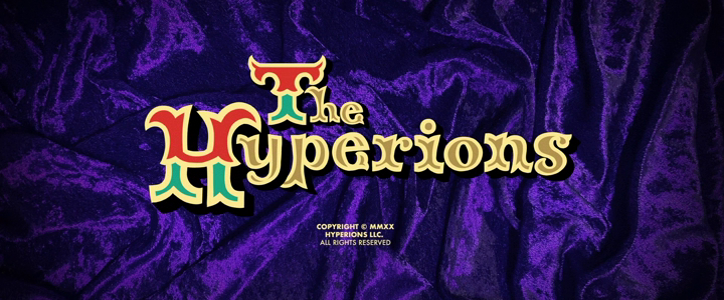
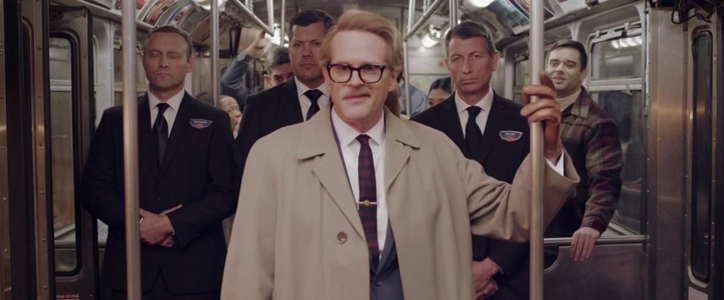
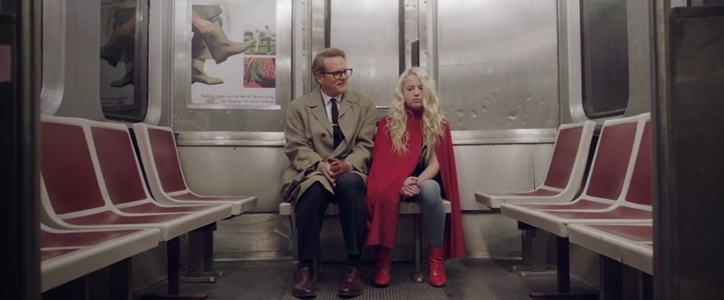
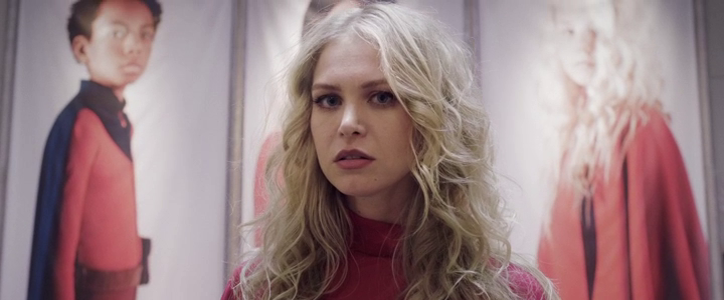
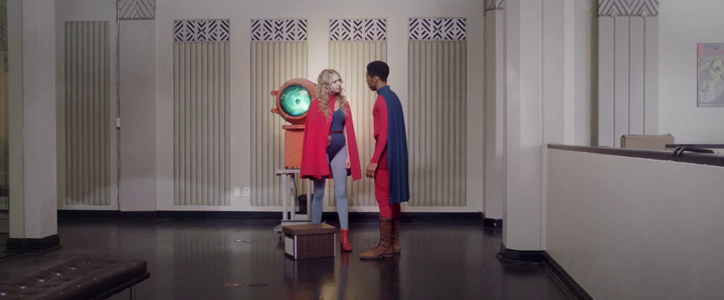
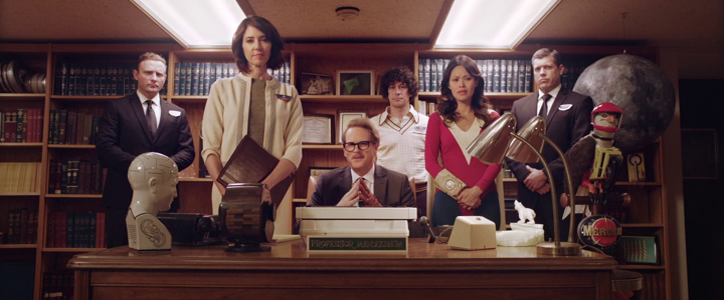
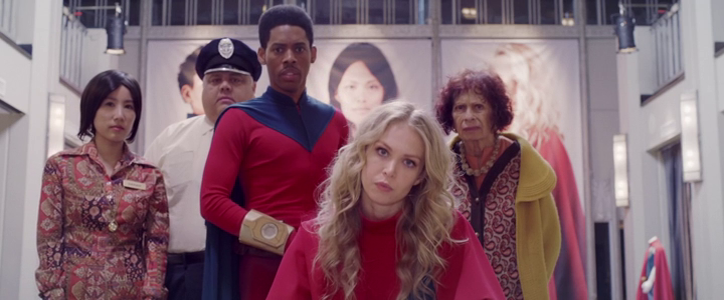
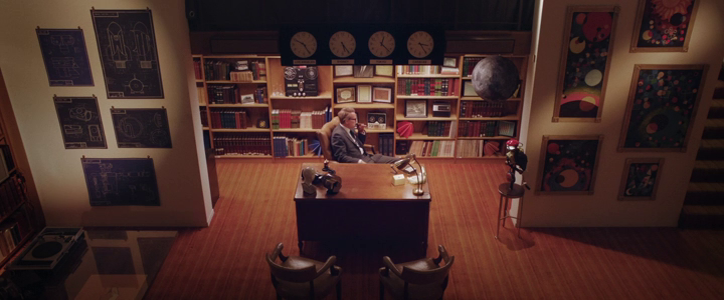
The Hyperions (2022)
Film review #505
Director: Jon McDonald
SYNOPSIS: In 1960, Professor Ruckus Mandulbaum invented the Titan badges: special devices that when worn could turn anyone in to a superhero. He adopted two young orphans and a third person to become a team of superheroes. As time went on, different heroes took up the titan badges as the original heroes moved on with their lives. In 1979, two of the original superheroes want their badges back, and take hostages until Mandulbaum agrees to release them…
THOUGHTS/ANALYSIS: The Hyperions is a 2022 sci-fi film. The film revolves around a group of people given superpowers by Professor Mandulbaum and his inventions, the titan badges. In 1979, nearly twenty years after they were first invented, two members of the first generation to wear the badges stage a robbery to try and get them back, realising that they need Mandulbaum’s help to do it. Despite looking like a superhero film on the surface, it focuses more on being a drama and the relations between the characters, with a hint of light-comedy thrown into the mix. The plot is pretty threadbare, and the whole premise of the film is laid out early on for the drama to unfold. The plot tries to raise the stakes by revealing the motivations of the characters, but it never really adds anything surprising or captivating to change the state of play. The constant back and forth with flashbacks revealing parts of the story really staggers any kind of progression as well. The pacing, especially near the end, is very rough.
Being a superhero film actually plays very little role in the overall story, and as mentioned it’s very much focused on the characters. Maybe the point is to do something “different” with superhero characters and look at their humanity, but this is something that has been done to death with trying to show a “different” side to them outside of their superhero persona. While this usually results in making them angsty and tormented in comparison to their heroic status, The Hyperions seems to instead try to humanise them by focusing on the relationships between the characters, and the strain put upon them through being a superhero. Their disagreements and tensions are relatable, but maybe too much so: the superhero set-up in fact has very little effect on the content of the film, and while it can be good to have certain expectations subverted, instead the film just replaces it with…very little. The main characters have specific personalities and motivations, but the main cause of tension and drama between the characters is skirted around, and when it is addressed, is rushed and unrewarding. Aside from the main characters, there are a few support characters, but none of them really have an impact either. It is perhaps worth mentioning that this film is backed and produced by the Daily Wire, who have dipped their toes into filmmaking as a response to Hollywood’s “agenda,” in defence of free speech or something. So departing from Hollywood superhero films, they have instead used their free speech to make a film that actually says very little, which I think is quite interesting. It feels like it’s so hyper-conscious of not having any political message to preach that it just ends up being vacuous at it’s core. Superheroes are political, and they do have a message to convey: trying to erase that misses the point entirely. It might be trying to reinforce traditional family values as the solution to all troubles, which seems to be the justification of the ad-hoc ending where everything works out because they’re family, but if that is the point, then the film ends up looking seriously naïve.
One of the most unique aspects of the film is the use of a 60′s animated aesthetic that is reminiscent of Disney films. Animated characters and effects overlap with the real-world, which provides some interesting visuals, but it just feels like there’s no purpose to it as a cinematic choice: it’s not parodying it, and the film isn’t structured or feature similar characters or plot points to those films. Combine this with the recurring problem of interrupting the film along with the flashbacks, and it ends up complicating the film without adding anything of significance. The sets look good, and have a particular aesthetic with it’s 60′s technicolour vibe, but other than that nothing really stands out on that front. Some of the lacklustre elements of this film can perhaps be put down to it being a directorial debut, but there definitely is a problem with the film being reluctant to say anything of importance, and as mentioned above, I think it has something to do with the people behind it rebelling against Hollywood’s perceived “agenda” and some imagined defence of free speech to the point that it has nothing to really say. there are some good points to this film: there are some good dramatic moments and emotional scenes between some of the characters, but a haphazard structure, bad pacing, confused comedic choices, and a jumble of aesthetic choices that combine to make The Hyperions an overall dull and meandering experience.
-
#505 – Space Truckers (1996)
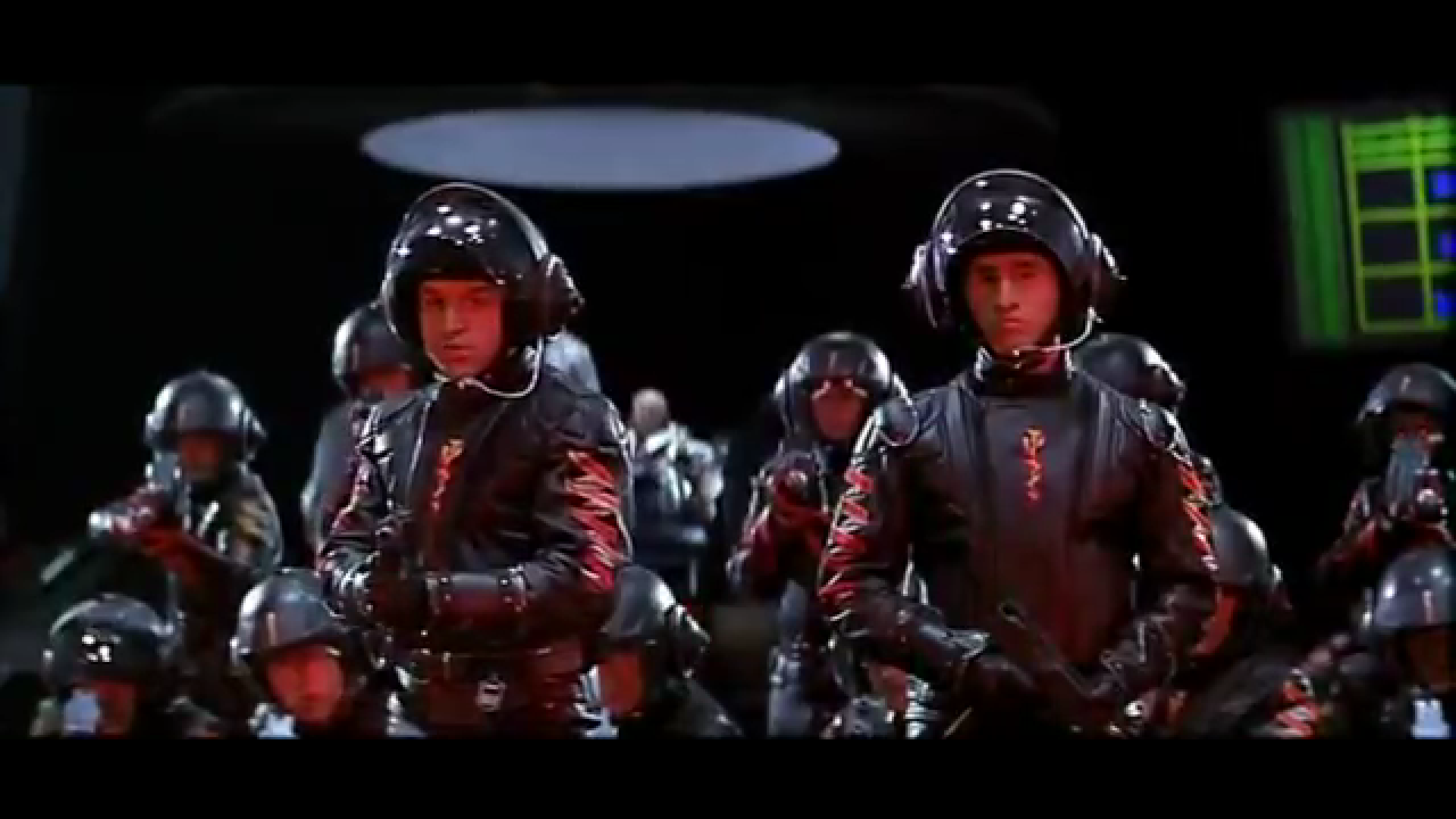
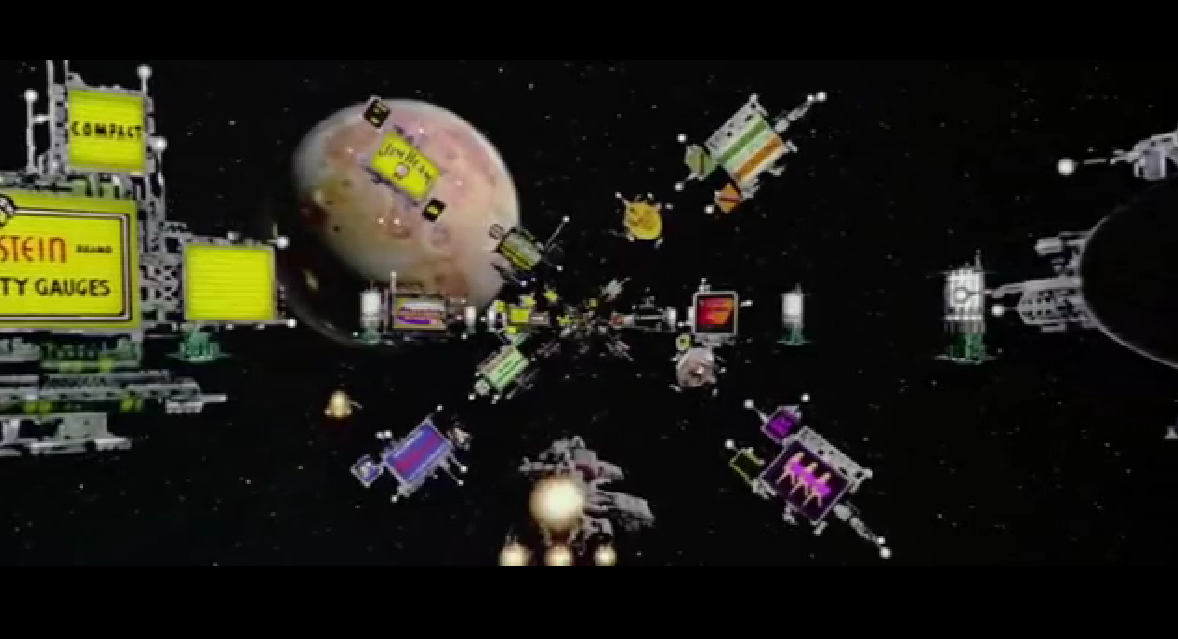
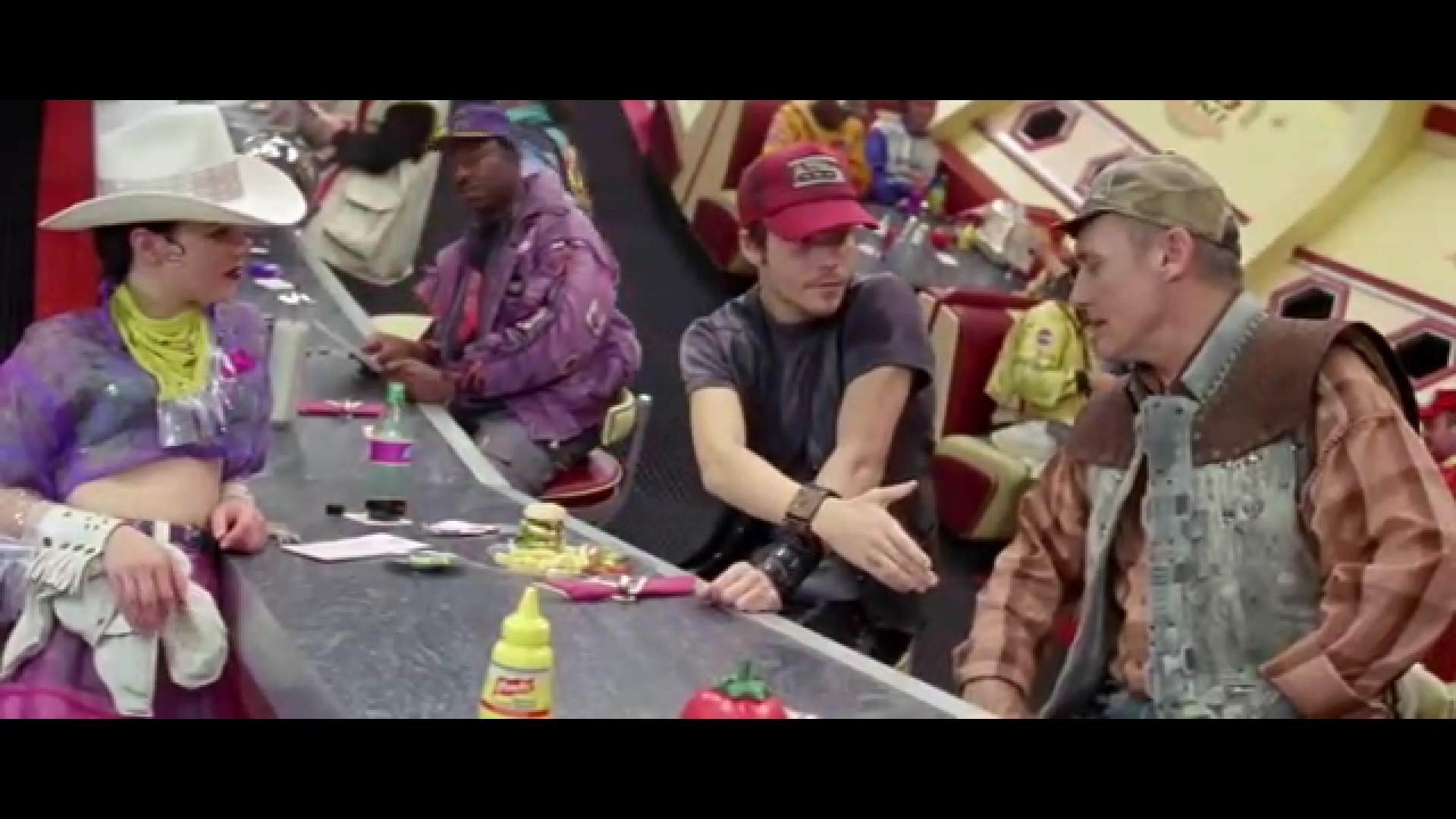
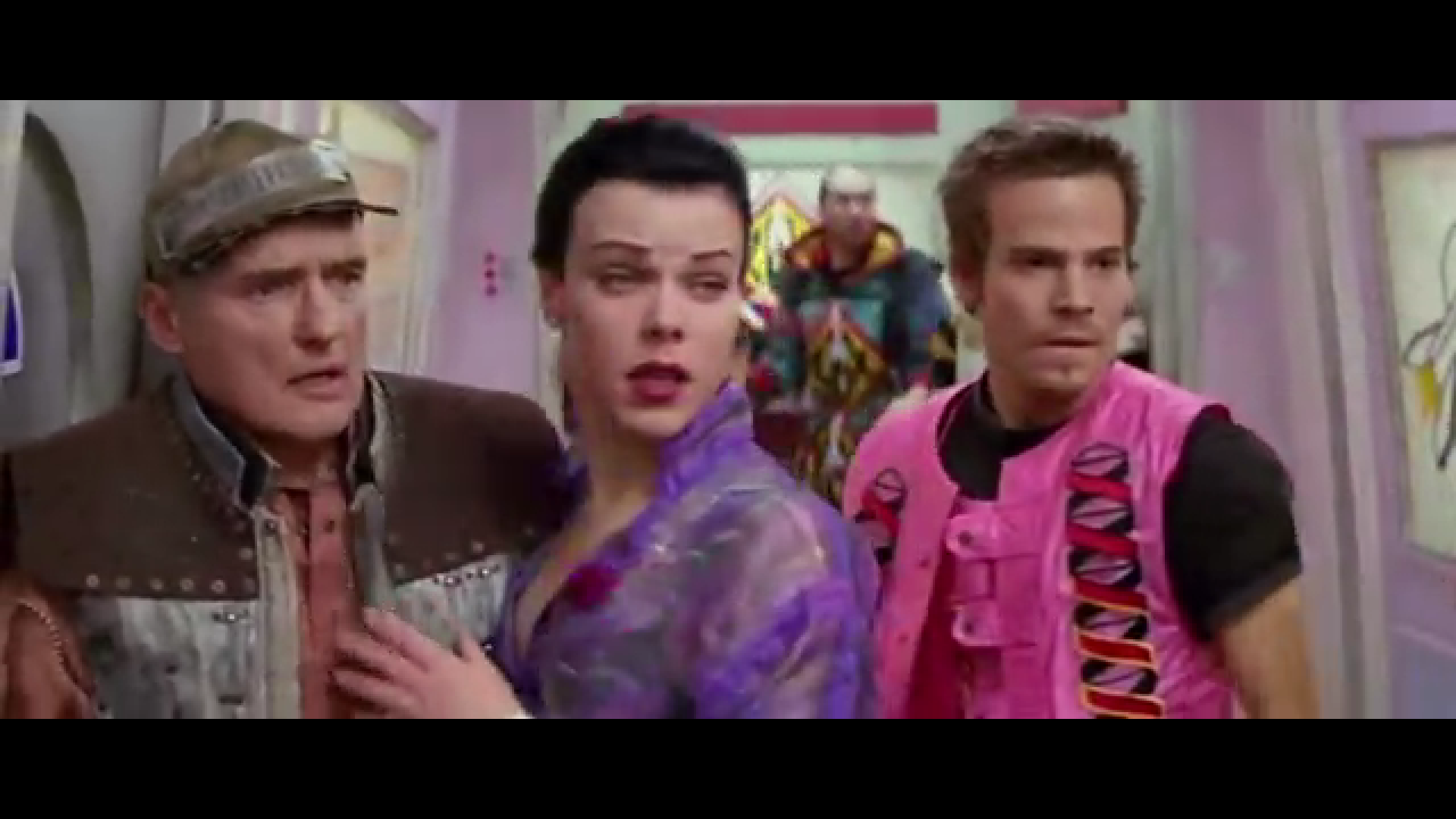
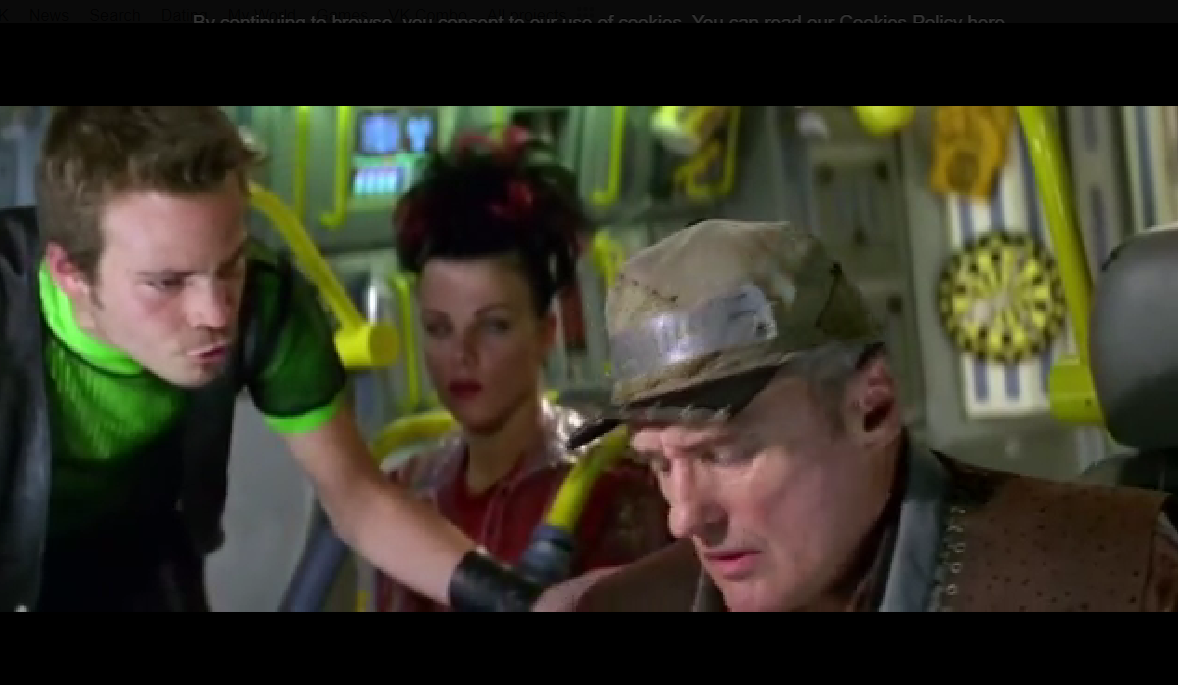
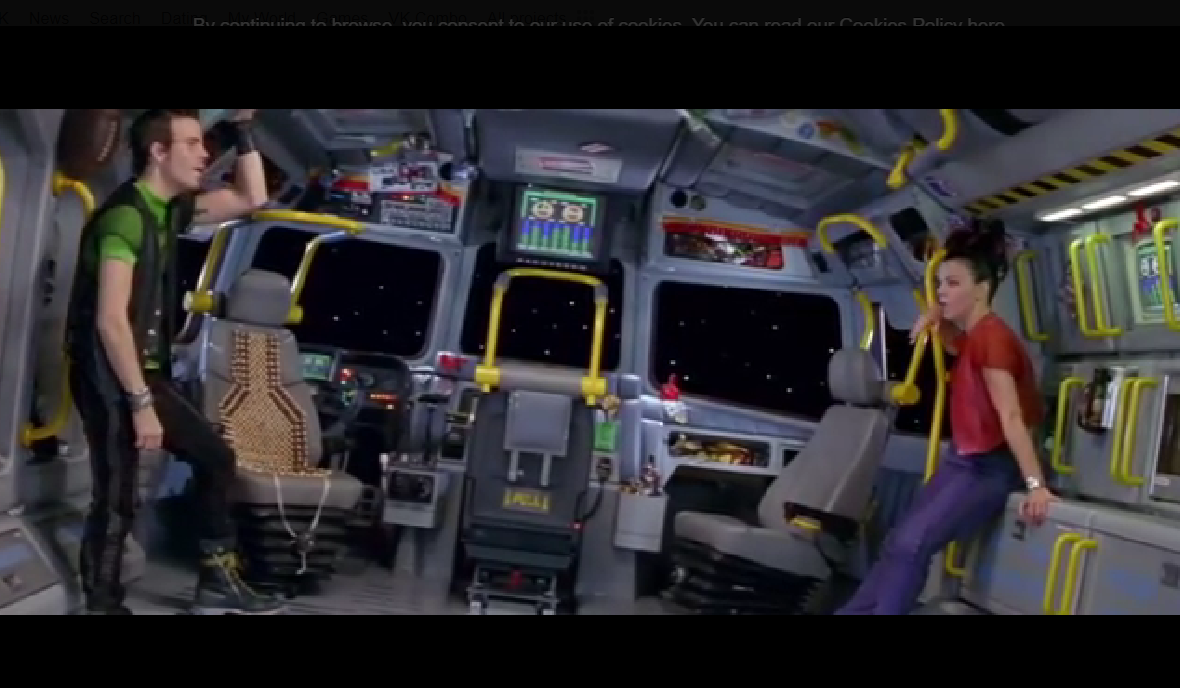
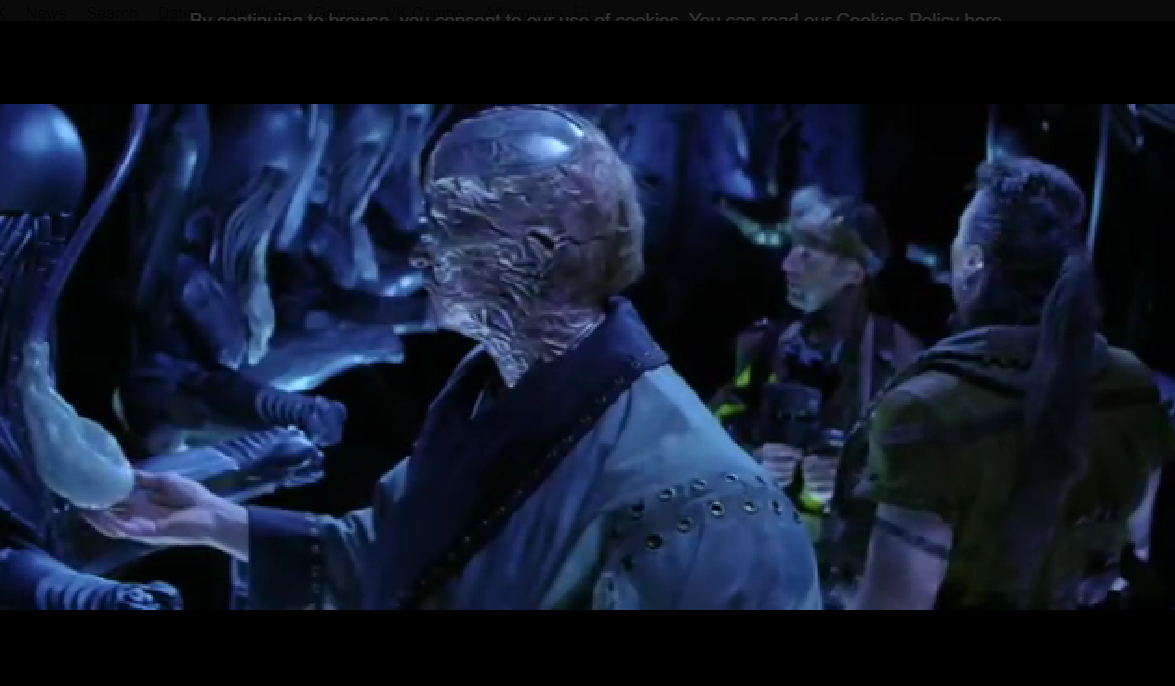
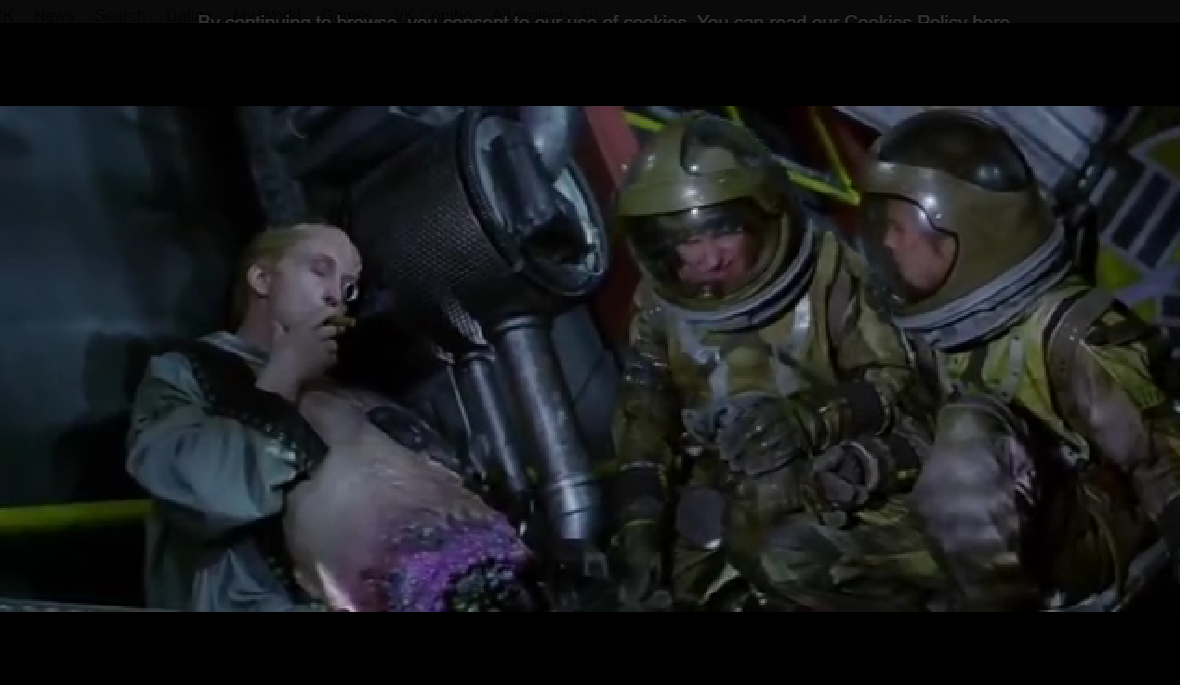
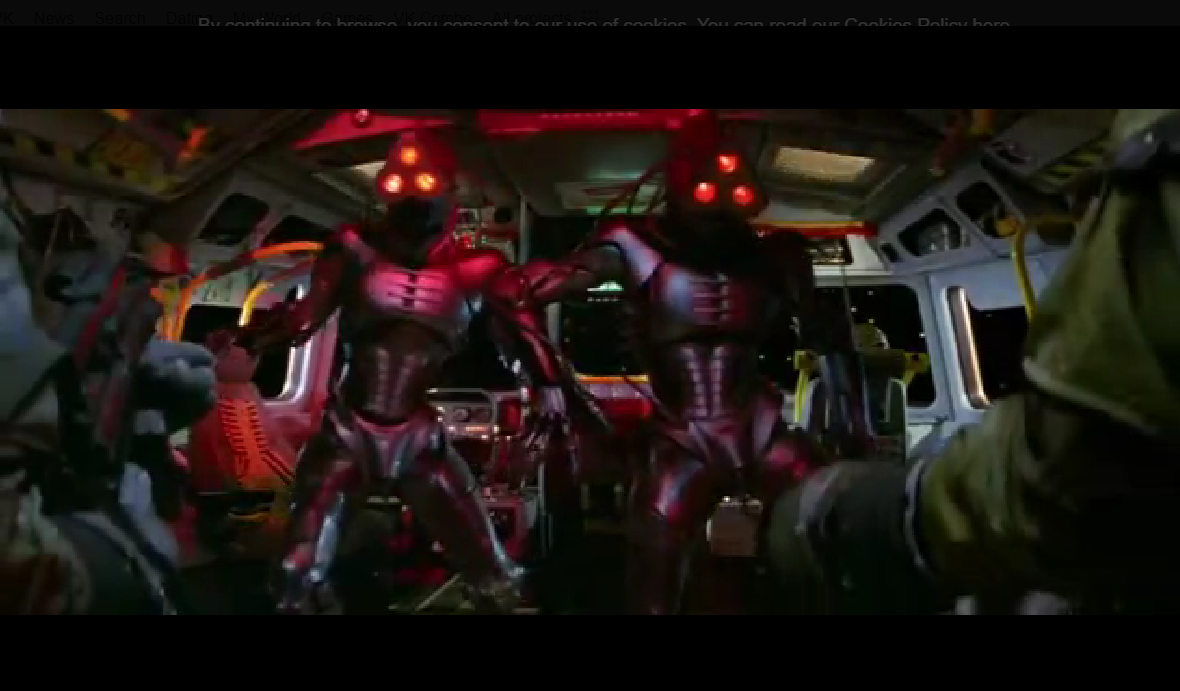
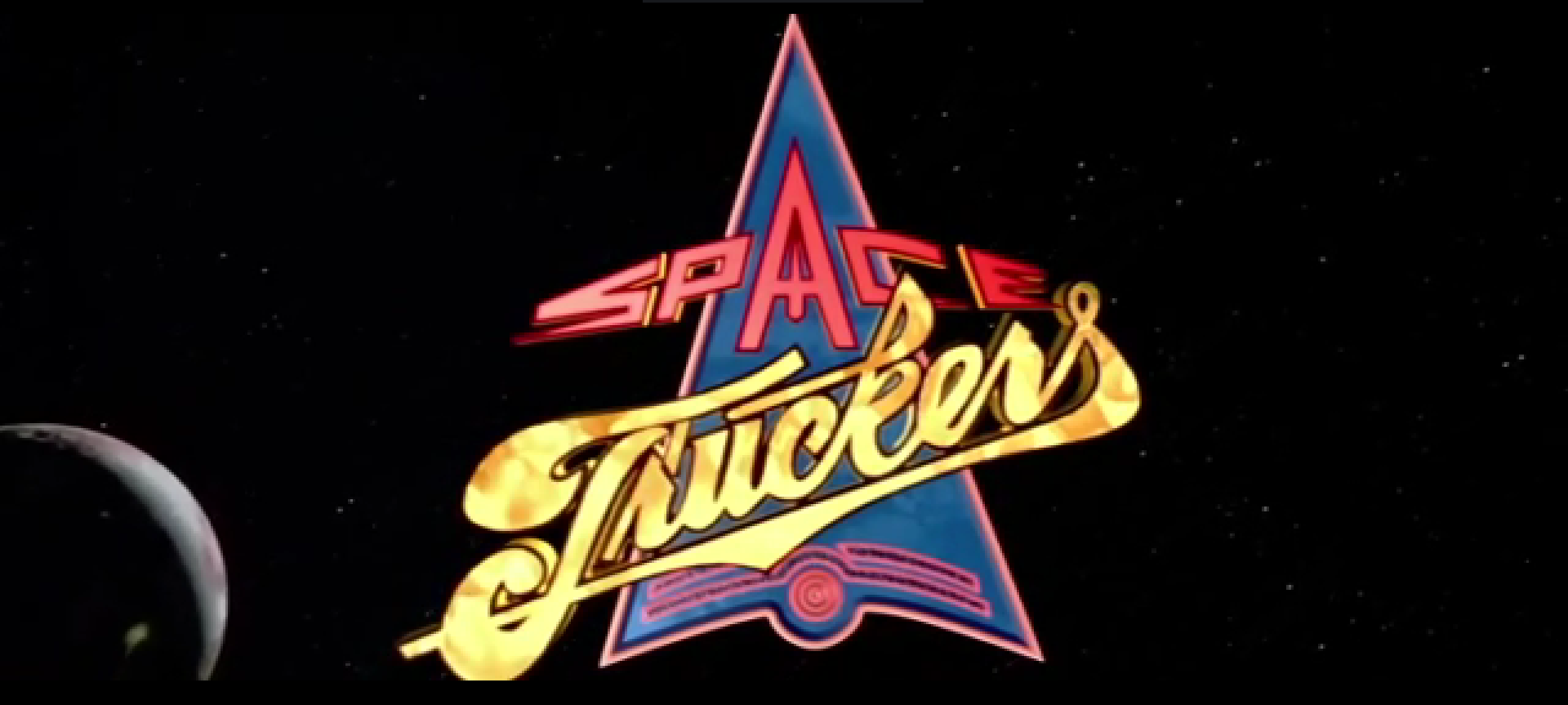
Space Truckers (1996)
Film review #505
Director: Stuart Gordon
SYNOPSIS: John Canyon is hauling a shipment of hogs to a remote space station. Failing to get paid, he takes on another job to deliver a secret and sketchy cargo to Earth. When John’s truck is hijacked by raiders, they open the cargo and inadvertently release an army of killer robots. John and his crew must stop the robots before they can get to earth and cause untold destruction to the planet…
THOUGHTS/ANALYSIS: Space Truckers is a 1996 sci-fi film that is succinctly described by it’s title: it’s about truckers in space. John Canyon (Dennis Hopper) is hauling twenty-thousand tons of hog fat to Titan Station. However, because he is late, his employer refuses to pay him the full amount. Now broke and without a job, he takes on a seedy contract to take an unknown cargo to Earth. Taking along Cindy, a waitress who needs a lift to Earth, and Mike, a newly qualified space trucker, the three set off with their cargo to Earth in this film that feels so very quintessentially 90′s. The bright colours, comedic tone give off the impression of a typical sci-fi b-movie parody, but there’s more to it than meets the eye. The story is a little threadbare and takes a while to get into the heart of the story, but it takes its time to introduce a fair amount of detail into the world. Regardless, it’s still a fairly simple story to follow, and all the plot points are familiar and fun: it’s basically just trucking in space, but it allows for some entertaining set ups and fun across the board, with even a few twists thrown in to keep things interesting. There’s a mix of comedy, action, parody and even some darker thriller elements in the film, which is a lot to take in, but it handles the constant switching well. The film obviously tries to appeal to a wide audience and not get entrenched too much in one genre or another.
The characters should feel very familiar to viewers: John Canyon, portrayed by Dennis Hopper is the grizzled trucker veteran who teaches waitress Cindy and new driver Mark about the trucker lifestyle (along with the viewer). A host of smaller support characters are vividly brought to life and serve very specific purposes making them stand out, just not in any unique way, and even though the acting can sometimes feel a little flat, on the whole the casting feels pretty solid. In classic sci-fi fashion the world it creates feels different, yet familiar: the diner where one of the opening scenes takes place looks like a typical American diner, but has a sci-fi twist with it being a zero-gravity “wheel” shape obviously inspired by 2001: A Space Odyssey. We don’t get too much information about what it is like on Earth, but that perhaps enhances the feel of being a trucker; out on the road far from civilisation.
For a middle-of-the-road sci-fi movie that meanders between action and comedy, Space Truckers has an impressive amount of effort put into it’s designs and production. The models used for the spaceships have plenty of detail to catch your attention, and they look very sturdy. The killer robots were designed by noted Japanese illustrator Hajime Sorayama, who specialises in these types of creations, and again they are brought to life brilliantly, both in terms of their construction and their choreography. There are some weaker elements in the production though: the CG is pretty bad, but thankfully it is used very sparingly, and the majority of the effects are practical. Also you can often see the strings attached to the actors when they are “floating” in zero gravity. These are minor things that don’t really distract from a fun experience though. Space Truckers isn’t ground-breaking, but it’s a good mix of genres that makes an entertaining watch, that quietly stands out in terms of some of it’s production and design.
